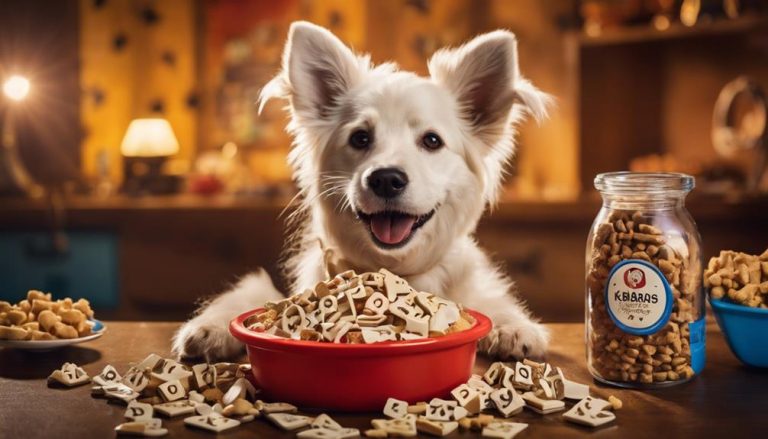Kabanos: Safe for Dogs or Not?
Feeding dogs and kabanos should be done with care due to their high fat and sodium levels. These ingredients are not ideal for a dog’s health as they can lead to obesity and pancreatitis.
Kabanos also contains spices and preservatives that might upset your dog’s stomach. Giving your dog small amounts of cabanas while keeping an eye on their overall fat and sodium intake is wise.
Talking to a vet before adding cabanas to your pet’s diet is best. They can provide advice based on your dog’s specific health needs. If you are looking for healthier, vet-recommended snacks, they are a good idea for your dog’s diet.
Key Takeaways
- Feed kabanos in small amounts; it’s rich in protein.
- Watch the fat and salt; too much isn’t suitable for dogs.
- Please consult your vet before adding cabanas to their meals.
Understanding Kabanos
Kabanos, a Polish dry sausage, is cherished for its rich taste but requires caution when feeding it to dogs. Originally made mainly from pork, it’s packed with protein suitable for dogs.
However, its high fat and sodium levels and possible harmful additives make it less ideal for your pet. Dogs can have Kabanos as a rare treat, cut into small pieces, especially during training sessions.
To keep them healthy, it’s essential to strike a balance when introducing human food like Kabanos into a dog’s diet.
Health Risks and Benefits
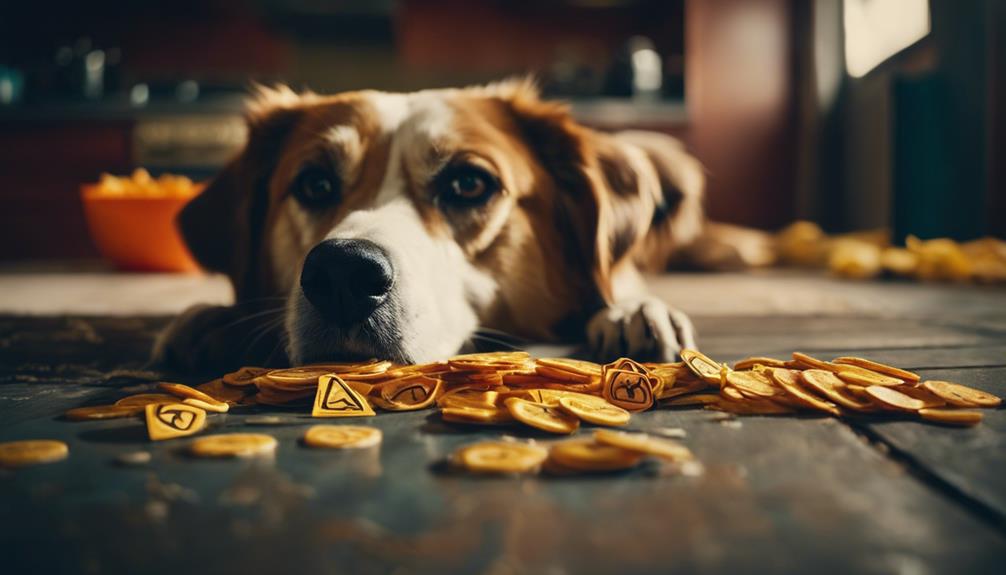
Considering the health impacts of giving dogs kabanos, it’s clear there’s a mix of good and evil. On the one hand, the high protein in cabanas can be beneficial, providing dogs with the essential nutrients they need.
On the other hand, the downsides are not minor. Kabanos are often high in fat and sodium and might contain spices that aren’t great for dogs. These ingredients can lead to issues like weight gain and stomach problems.
To avoid these problems, being thoughtful about giving cabanas to your dog is crucial. Using moderation and ensuring you’re not overfeeding your pet can help keep them healthy and happy. This approach helps to balance the nutritional benefits with the potential health risks.
Potential Health Hazards
Feeding your dog cabanas as a treat might seem like a good idea due to their protein content, but it’s essential to be aware of the potential health risks. The high fat and sodium levels in cabanas can lead to obesity and pancreatitis in dogs. These conditions are severe and can cause further health problems down the line.
The fat content in kabanos is a significant contributor to obesity in dogs. Obesity can lead to various complications, so carefully monitoring your pet’s diet is crucial. On the other hand, a sudden increase in fat consumption can cause pancreatitis, an inflammation of the pancreas that is painful and can be severe.
The sodium in cabanas is another concern, predisposing dogs to issues like high blood pressure. Spices, seasonings, and preservatives found in cabanas can also upset a dog’s digestive system. It’s clear that while cabanas might be tempting as a quick treat, they pose risks that you should avoid for your dog’s health.
Nutritional Considerations
When considering adding cabanas to your dog’s meals, it’s vital to consider their nutritional benefits and the possible health issues they might cause. Kabanos offers a good source of protein, which is excellent for dogs, but its high fat content could lead to obesity and pancreatitis, both harmful to a dog’s well-being.
The snack’s high salt content and additives, such as nitrates, can also pose serious health risks, including high blood pressure, heart disease, and digestive problems. Therefore, if you decide to feed your dog cabanas, it should only be in small portions, and you should watch out for any adverse reactions.
Talking to a vet is also crucial to ensure that cabanas fit into your dog’s diet without harming their health.
Safe Feeding Practices
Ensuring your dog stays healthy means being cautious about what treats you give them, especially regarding cabanas. This Polish sausage is packed with protein but also has a lot of fat and salt, which could be harmful. Giving your dog a few cabanas now and then is OK, especially as a reward during training. Just cut it into small pieces to keep an eye on how much they’re eating.
The high-fat content in kabanos can lead to obesity and pancreatitis in dogs, while too much salt might cause high blood pressure and heart issues. The spices and preservatives in kabanos, which give it flavor, might not agree with every dog. So, when you’re thinking about feeding your dog kabanos, it’s essential to do it carefully and sparingly.
Safe Serving Suggestions
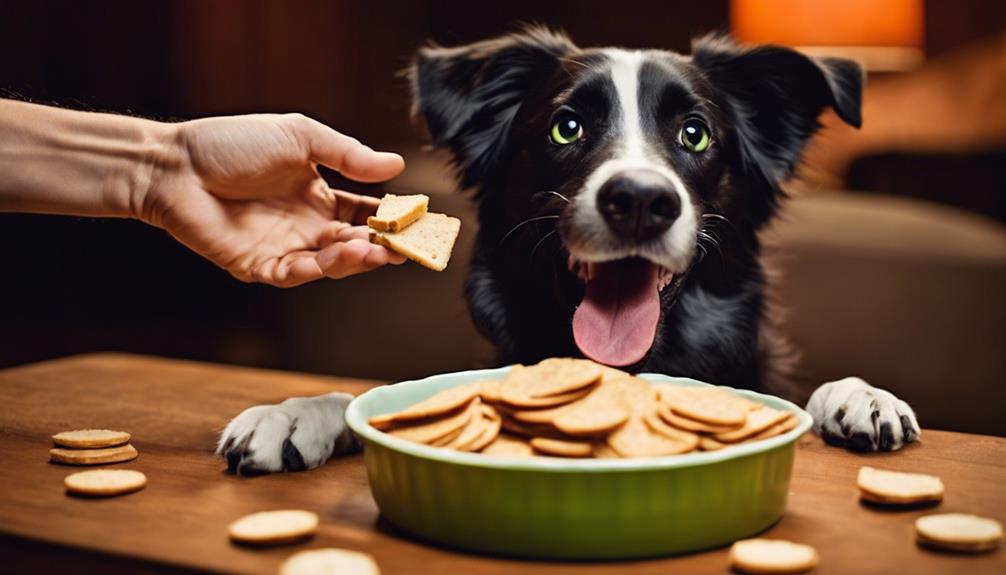
When adding cabanas to your dog’s diet, understanding the right portion size is critical. This helps avoid too much of a good thing and ensures they get a well-rounded diet. Cutting the cabanas into small pieces is essential to reduce the risk of choking and make it easier for your dog to digest.
Knowing the benefits and potential drawbacks of cabanas helps dog owners make smart choices about using them as a special snack. It’s also a good idea to get advice from a veterinarian. This ensures you’re providing safe and healthy treats for your dog.
Portion Size Guidelines
When feeding cabanas to our canine companions, keeping their health and safety in mind is essential. Here’s a straightforward guide to ensure your dog enjoys these treats without any adverse effects.
Portion control is critical. Only give your dog small pieces of kabanos to avoid any health issues. It’s vital to incorporate these treats into a varied diet. Kabanos should not be the mainstay of your dog’s nutrition but a small part of a well-rounded diet.
Are you using cabanas as training rewards? That’s a great idea, but remember to do so sparingly. Giving too many treats can lead to overfeeding and weight gain. Also, to prevent any risk of choking always cut the cabanas into bite-sized pieces that are easy for your dog to manage.
Watching your dog’s fat intake is another important aspect. Treats like cabanas can be high in fat, so monitoring how much and how often your pup consumes them is critical. The goal is to enjoy treats while keeping a balanced diet.
Ideal Preparation Methods
Preparing cabanas for your dog involves cutting it into small pieces to prevent choking. It’s critical to consider the size and how you prepare it to suit your dog’s eating habits and health needs.
Use cooking methods that keep added fats low, preserving the kabanos’s flavor while ensuring it’s safe for your dog to eat. You might want to mix these pieces with their usual food to add variety without upsetting their diet. Remember, it’s best to skip adding any seasonings, as what’s safe for us can harm dogs.
Offering cabanas with other safe snacks, in moderation, can spice up their diet without harming their health. Just be aware of the snack’s fat and sodium levels.
Potential Health Benefits
Adding cabanas to your dog’s meals in moderation can be an excellent way to boost their protein intake. This is crucial for keeping their muscles strong and ensuring their overall health. Since cabanas are mainly made from pork, dogs are generally safe to eat.
When you cut it into smaller pieces, it becomes an excellent training treat, helping reinforce good behavior without messing up their diet.
It’s vital to watch how much cabanas your dog eats. Portion control is critical to avoiding any negative impacts on their health. Giving them too much, even something high in protein like kabanos, can reduce their diet’s balance and lead to issues. So, always give them the right amount to keep their diet healthy and balanced.
Spotting Allergic Reactions
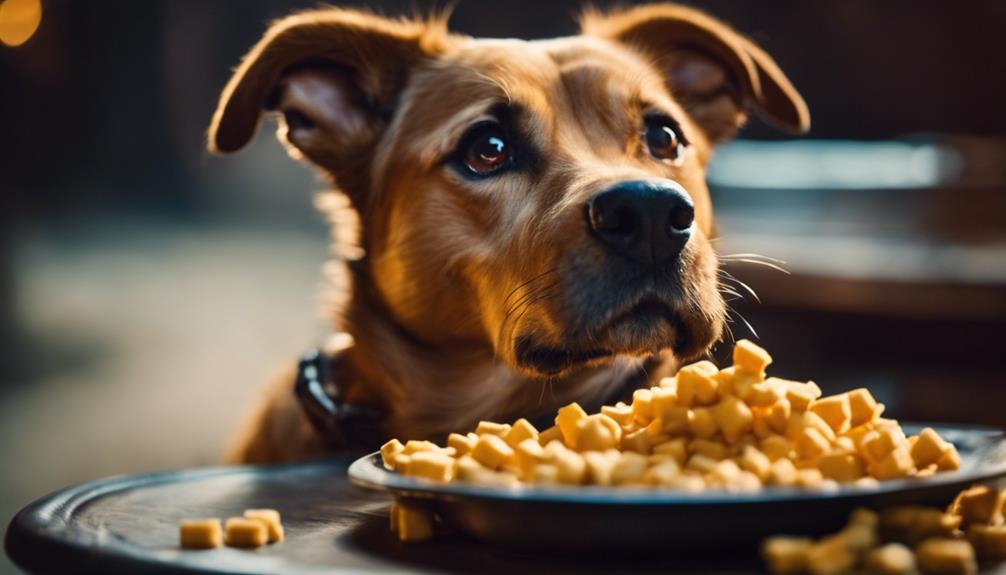
Recognizing allergic reactions in dogs from eating kabanos is vital for their health. Symptoms might range from slight skin irritation to severe and life-threatening anaphylaxis. Tracking symptoms is critical, especially if you notice skin redness, a lot of scratching, or any behavior changes, which might mean your dog isn’t handling kabanos well.
If your dog starts having trouble breathing or collapses, this is an emergency, and you need to get them to a vet fast to avoid a fatal outcome.
Introduce cabanas or any new food slowly to your dog’s diet, watching for odd behaviors or digestive problems like vomiting or diarrhea. Writing down how your dog reacts can help identify what’s causing the allergy, keeping them safe and comfortable.
Alternative Dog Treats
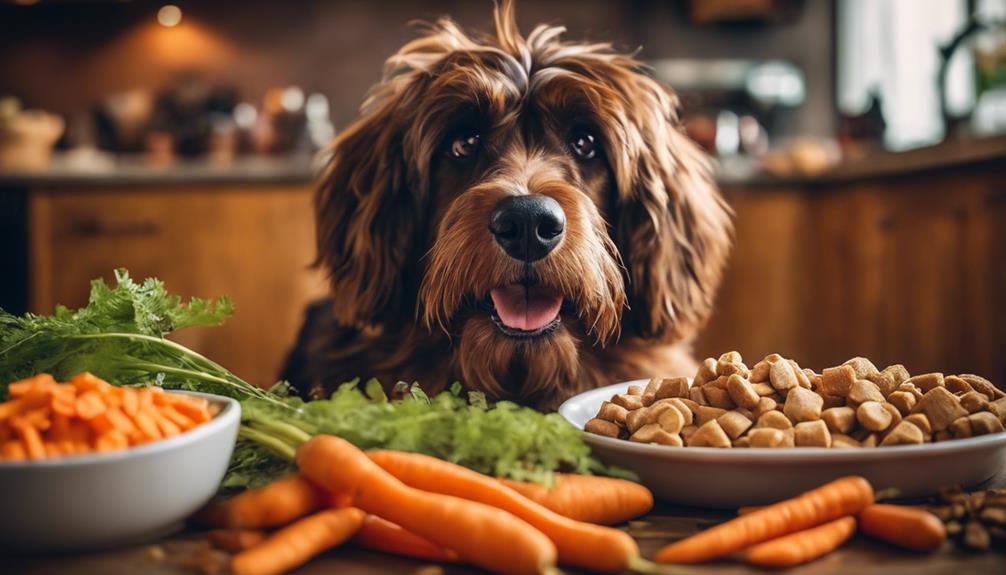
Given the potential health risks of cabanas for dogs, pet owners need to consider safer and more nutritious snack options. Dried liver treats are a great alternative because they’re packed with protein and contain few additives, making them a healthier choice. Making your dog treats with safe ingredients like pumpkin or sweet potatoes can also be a fun way to ensure your dog gets a nutritious snack.
For lean protein options, kangaroo sausages are an exciting choice that can boost your dog’s diet. VIP Chunkers and Ziwi Peak Treats are also excellent options for pet owners. VIP Chunkers offer bite-sized snacks in various flavors, while Ziwi Peak Treats are known for their air-dried meat mixes without harmful additives. These choices provide variety and ensure your dog’s treats are safe and nutritious.
Monitoring After Consumption

After your dog has had some cabanas, it’s crucial to watch them for any adverse effects, like stomach issues. Staying alert to their condition ensures they remain healthy and happy. Here’s how you can do that effectively:
Watch for signs of upset stomach, such as vomiting or diarrhea. These symptoms can show that the kabanos didn’t sit well with your furry pal. Also, be on the lookout for any lack of energy, which is another red flag.
Pay attention to changes in your dog’s water consumption and bathroom routine. These might be early indicators of discomfort that aren’t as obvious but equally important.
Notice any odd behaviors or if your dog seems to be in pain. This could mean they’re not feeling great after eating the kabanos.
If you spot any worrying signs in your dog’s health, don’t hesitate to contact your vet.
Common Ingredients to Avoid

Watching your dog’s diet is crucial, especially when introducing treats like kabanos. It’s critical to recognize harmful ingredients that could endanger their health. Onions and garlic can lead to severe anemia in dogs, posing a significant risk. Likewise, chocolate contains theobromine, a toxic compound causing symptoms from vomiting to seizures.
Foods high in fat, such as salami, may cause pancreatitis in dogs, especially if they’re overweight. Avocado content can lead to fluid buildup in a dog’s lungs. Another ingredient to watch out for is xylitol, a sweetener found in many sugar-free foods, which can cause low blood sugar and liver damage, potentially being deadly.
To ensure your pet’s well-being, avoiding these dangerous ingredients is essential. Your vigilance can help keep them safe and healthy.
Transitioning to Dog-Safe Snacks
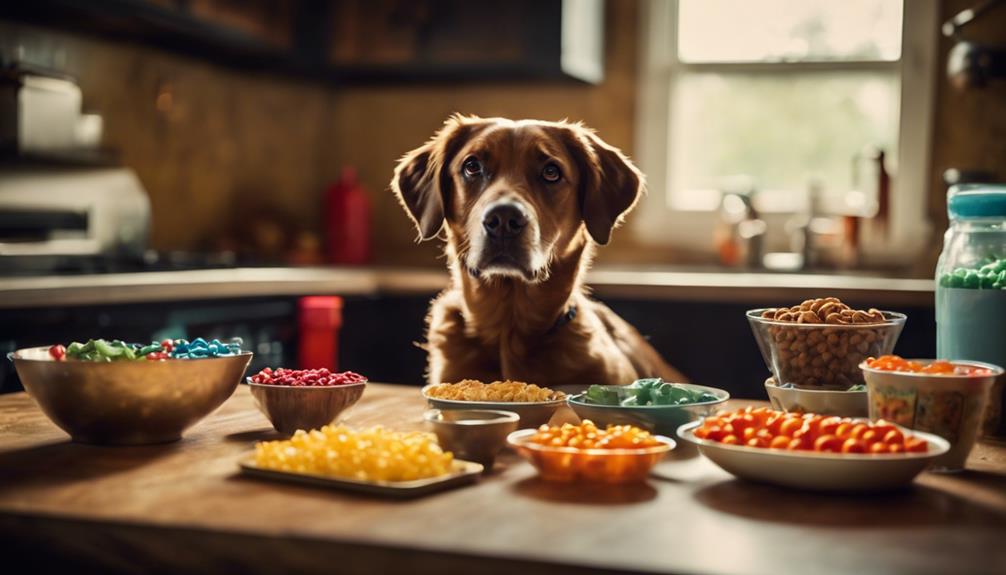
Transitioning your dog to safe snacks is crucial for their well-being and helps steer clear of unhealthy options like cabanas, which are high in fat and sodium. It’s all about choosing the proper treats for our dogs to ensure they stay healthy. Here’s what you need to consider:
Consulting your vet and making homemade treats with dog-safe ingredients is a great way to ensure your pet’s snacks are healthy. It’s all about knowing what’s best for them and providing it.
Focus on snacks that include lean meats and fruits to keep your dog’s diet balanced. These options are healthier and keep your dog happy and energetic.
Gradually introducing new, safer snacks to your dog is critical to avoiding digestive issues. Making these new treats appealing and nutritious is essential to ensure your dog enjoys them just as much as their old ones.
Frequently Asked Questions
What Kind of Sausages Can Dogs Eat?
- Lean meat sausages are safe for dogs.
- Avoid pork and seasoned sausages for dog health.
- Choose homemade over-processed for less salt and additives.
Are Canned Sausages OK for Dogs?
- Canned sausages may have too much salt for dogs.
- Some contain preservatives that could be harmful.
- Dogs might be allergic to the ingredients in them.
Is It OK for Dogs to Eat Smoked Sausage?
- Exercise caution with smoked sausage for dogs.
- Moderation prevents health issues.
- Consult a vet for dietary advice.
Can Dogs Eat Bananas?
- Bananas benefit dogs with fiber and potassium.
- Control portions to prevent digestive problems.
- Monitor reactions after feeding small pieces.

